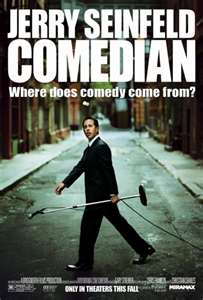The New York Times, whose editor-in-chief was recently elbowed out of her planned Barnard College commencement speech by Barack Obama, has been huffing and puffing its way into the grey world of electronic journalism. To that end, the newspaper has realigned its content to appeal to a liberal, prosperous audience strikingly similar to NPR's following. The
Times also desperately wants to get onboard with those who "consume content" (what a deadly concept for a writer) via electronic gadgets.
(My post yesterday about "the second screen" explores this electronic initiative.)
Today, "All The News That's Fit To Print" published a piece by staffer Julie Bosman about an erotic novel and its current popularity. The story's key angle is that the book,
E.L. James' 50 Shades of Grey, appeals to women. Ah, but not just all women, as Bosman pointedly notes. The book's somewhat stealthy audience belongs to the upscale, highly educated, e-reading crowd the
Times is targeting as its prime readership. The article's insulting premise is that this demographic profile is the only one that matters. At no point does Bosman bother to note that women have used supermarket tabloid sexcapade stories as escape and fantasy literature for decades. Romance novels? They're low rent, unsuitable for "people like us," and not discussed in Bosman's piece. Unsurprisingly, the writer interviewed an independent bookstore owner in Montclair, New Jersey, a community brimming with publishing and media insiders. However, Bosman did take time to observe the novel had breached....drumroll, please....a
Times best-seller list.
Bosman's shameless note of her own paper's lucrative best-seller roster is tasteless enough. However, her willingness to create the inference that
50 Shades of Grey was newsworthy because women of a
Times-desirable socio-economic demographic were panting to read the book's kinky sex scenes is symptomatic of classism. Curiously, Bosman never mentions feminism or Grey's literary predecessor,
Anais Nin, in the story. The Movement, as it was called before Bosman was born, is taken for granted in today's classist world. Or is it? E-readers have the virtue of providing anonymity of content to those not actually holding the reading "device."
Tellingly, Bosman's story was placed in the
Times' "Media & Advertising" section, not in the "Books" section. (In fairness, it was originally on the online edition's splash page.) After all, the most legitimate interest in the
50 Shades of Grey phenomenon is the money, even in an environment where the
Times and NPR are considered bulwarks of integrity (liberal version only, thank you) and inconvenient people and opinions are hustled off to some online Siberia. Meanwhile, Bosman and her editors have no answer to Barnard College's humiliating acceptance of Obama's thinly disguised demand for a speaking engagement. I never thought I would have any sympathetic feeling toward Ms. Abramson, but the Big O's arrogant election year "necessity" managed to change that dynamic. It's far from the first time Obama has been dismissive or insensitive toward women.
Do you think Barnard would have rolled over so easily for George W. Bush when 43 was president?





























